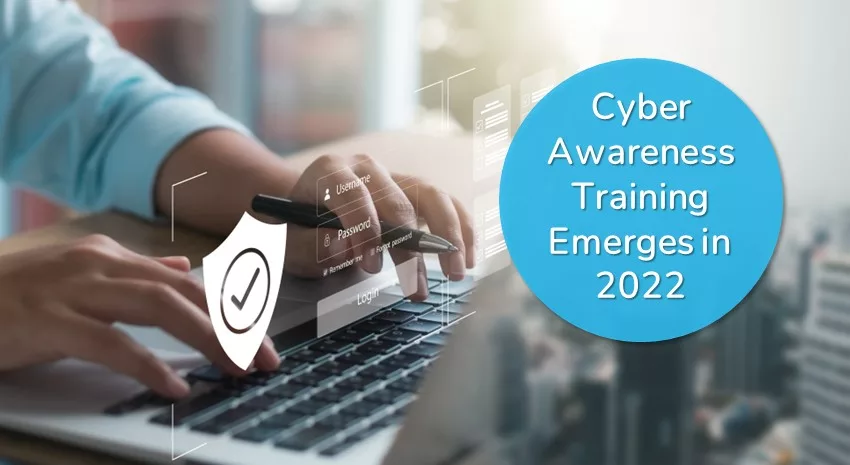Cyber Awareness Training Emerges as a Best Practice for Companies

Businesses are feeling the effects of malware threats, phishing attacks, and other forms of cyber intrusions by highly sophisticated attackers. So sophisticated, Ransomware as a Service (RaaS) is a reality in 2022. RaaS operations develop ransomware tools and services and collect money from affiliates using these tools. Phishing attacks are also highly effective, along with whaling attacks that target an executive officer or “big fish.” Information Technology (IT) departments are countering cyber attacks by introducing increased monitoring, segregating internal networks, and emphasizing cyber awareness training for employees.
“90 to 95% of all cyber attacks start with a phishing email, and 20 to 30% of all employees will click on suspicious emails,” according to Matthew Schmider, Technical Sales Consultant at ArcherPoint. “However, continuous education and testing can reduce this click rate down to 3%.”
Cyber awareness training has taken on a new meaning over the last five years due to the shift towards remote work. Security practices have also changed. New security approaches include creation of strong passwords, multi-factor authentication (MFA), data backup policies, limited access for employees, and updated rules for remote desktop protocols (RDP).
Nothing stays the same for very long with cyber attacks or technology. That’s why IT departments are staying current with new approaches, but also making a shift towards education and continuous cyber awareness training for employees.
How to Implement Cyber Awareness Training
So how do companies move forward with cyber awareness training? These are three practices your company can focus on at a foundational level with users.
- Onboarding cyber training is crucial. Onboarding is an important time to communicate to new employees the importance of cyber training, how quickly attacks change, and the importance of employees being the first line of defense. During onboarding, IT personnel can discuss password security, phishing exploits, opportunities for malware via Wi-Fi networks, and the ramifications of a cyber intrusion.
- Explaining the why with IT security policies. As employees get settled, your company needs to educate employees about the why of IT security policies. One place to start for many IT departments is the Zero Trust framework. The Zero Trust framework offers a comprehensive security approach with three broad principles: verify explicitly, use least privileged access, and assume breach. Assume breach is a stark realization for IT departments and employees. From a user perspective, new IT security approaches may incur extra time while scanning an attachment or your employees may feel device monitoring is too invasive. However, IT departments needs to emphasize that “big brother isn’t watch you…instead, we’re adding layers of protection.” Moreover, today’s security in a distributed workforce relies on confidentiality, integrity, and availability.
- Continuous training and new security tools. Companies need to provide continuous cyber training to employees due to the rapid developments with cybersecurity. IT approaches can include gamifying security meetings by awarding points to employees that attend and participate in security meetings, be it quarterly or semi-annually. Meetings are a great opportunity for your IT personnel to demonstrate new technology, like the KnowBe4 platform that allows employees to mark suspicious emails, or receive feedback on new monitoring software.
Remote working has changed the business world and your IT department’s policies are much more complex in 2022. However, an increased focus on cyber training for employees can be simple and effective move in reducing cyber security events.
Find out How Cyber Insurance Works and Whether Midsize Businesses Need It
Businesses are focusing on how to improve cybersecurity approaches and evaluating different cyber investments. Find out how cyber insurance is gaining traction with businesses and how ArcherPoint can help investigate this cybersecurity tool and other IT Managed Services.

